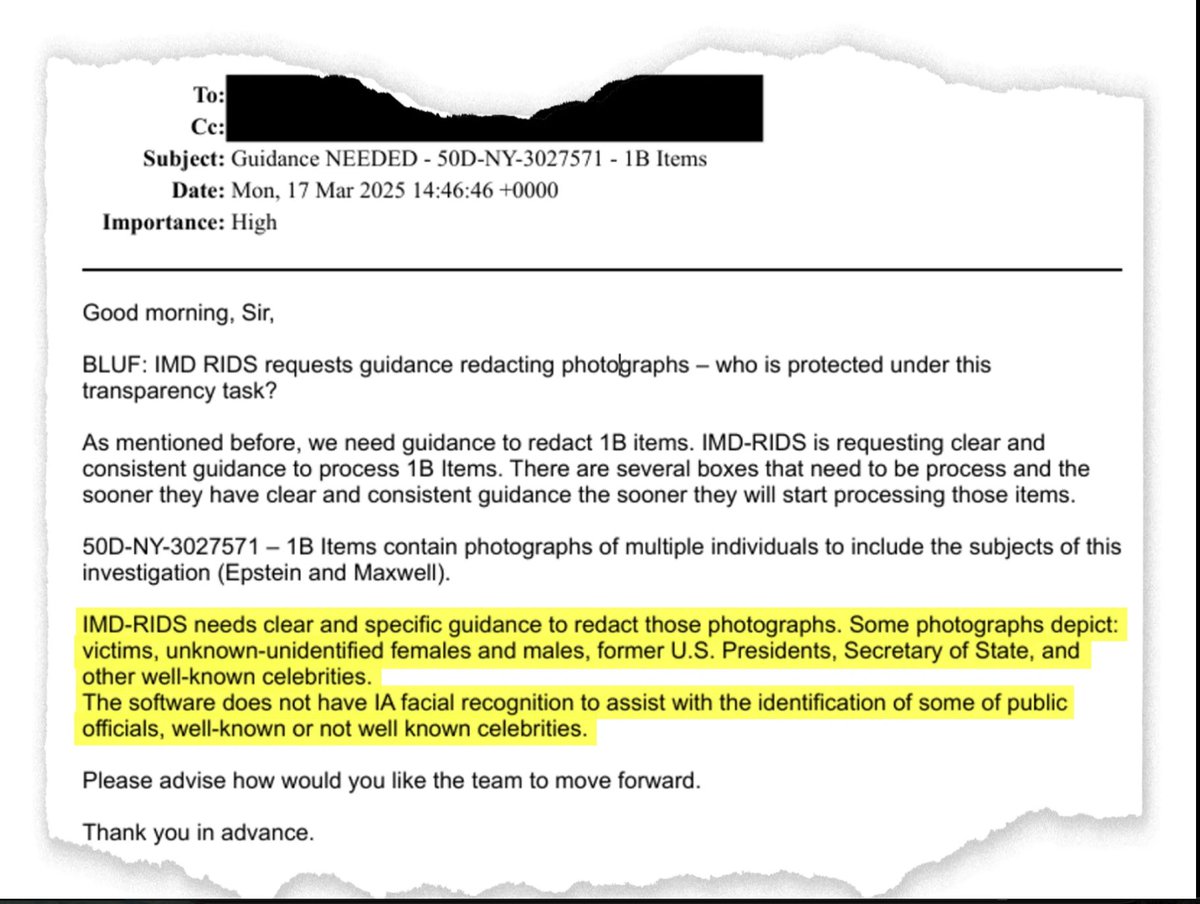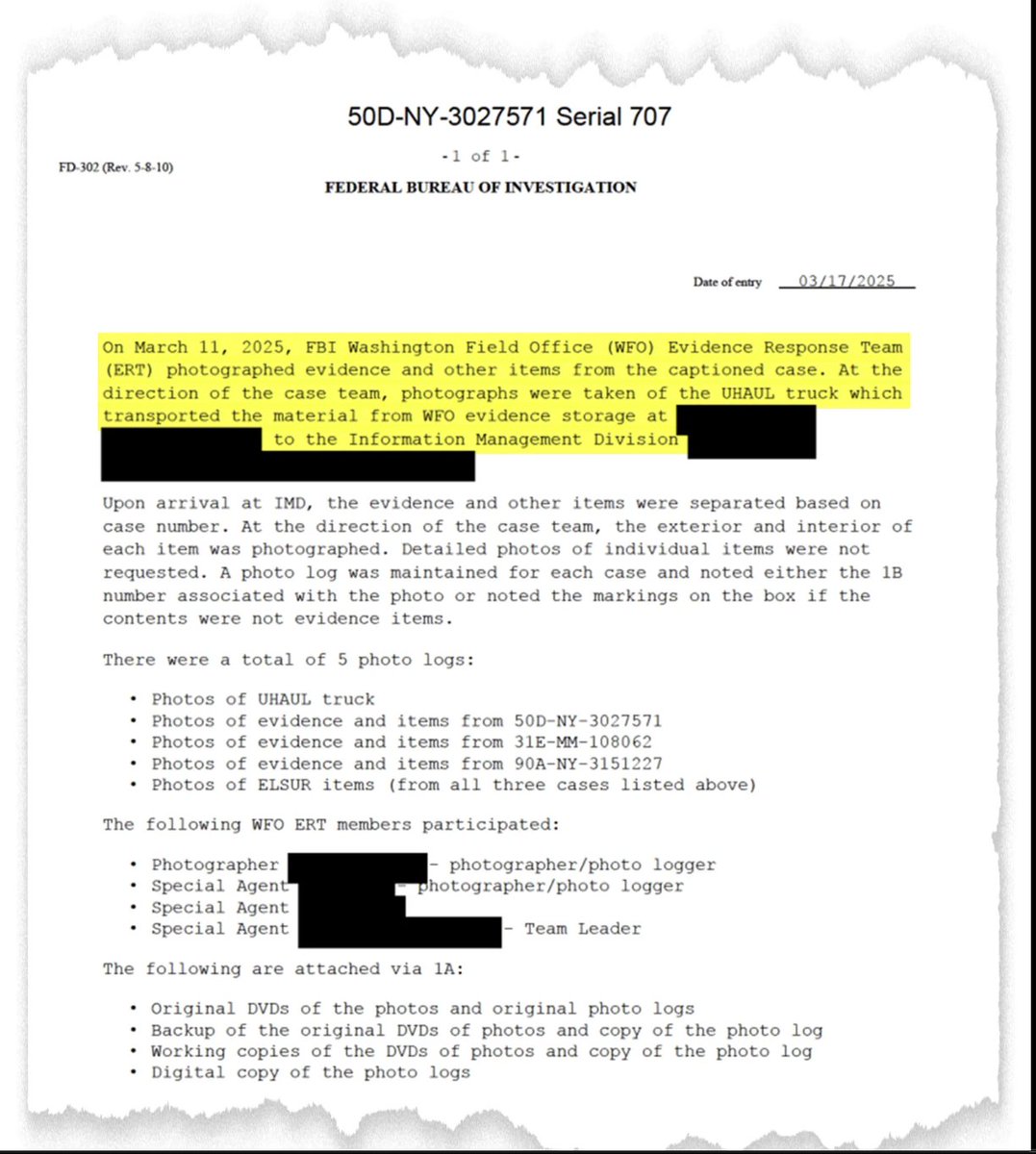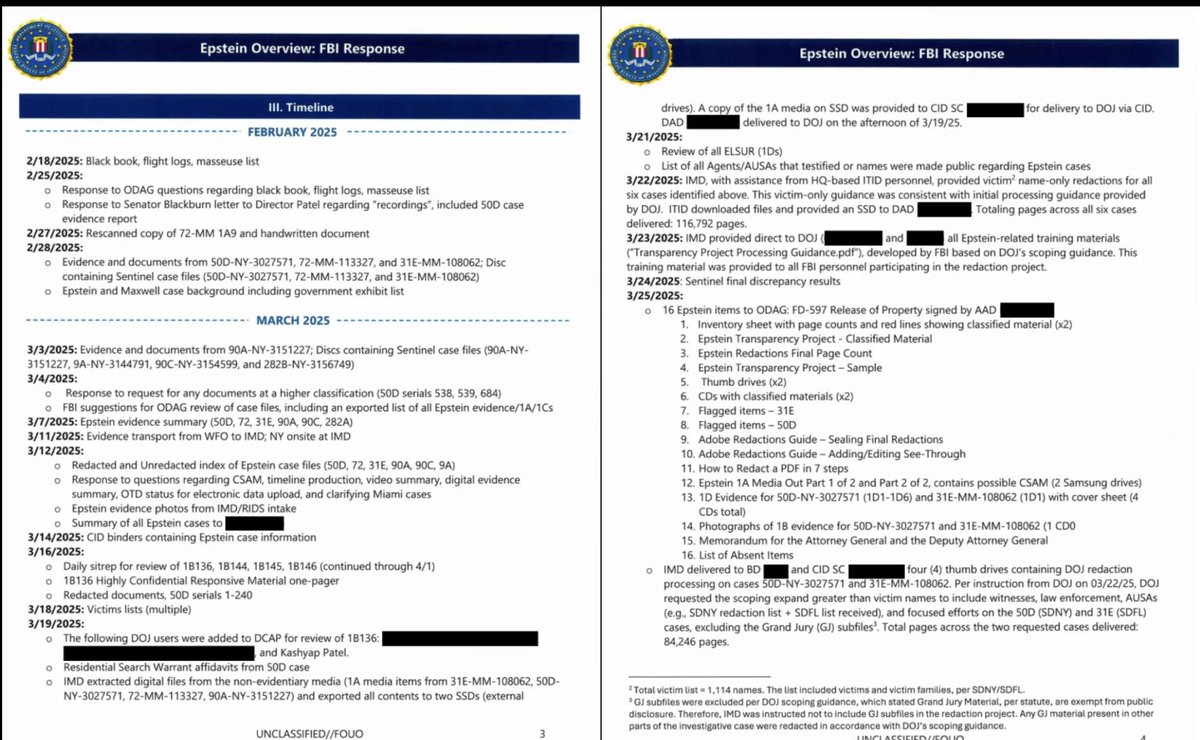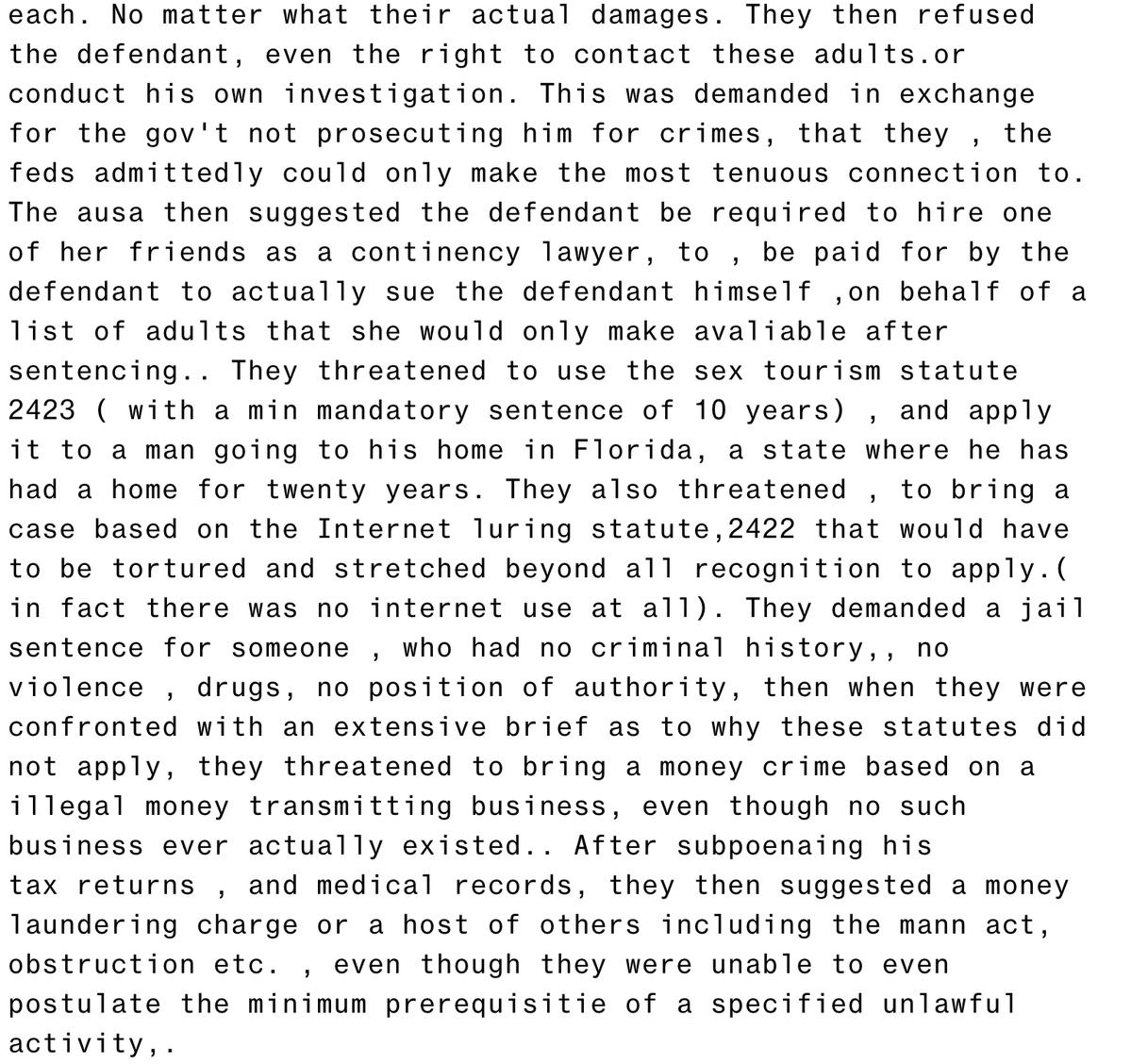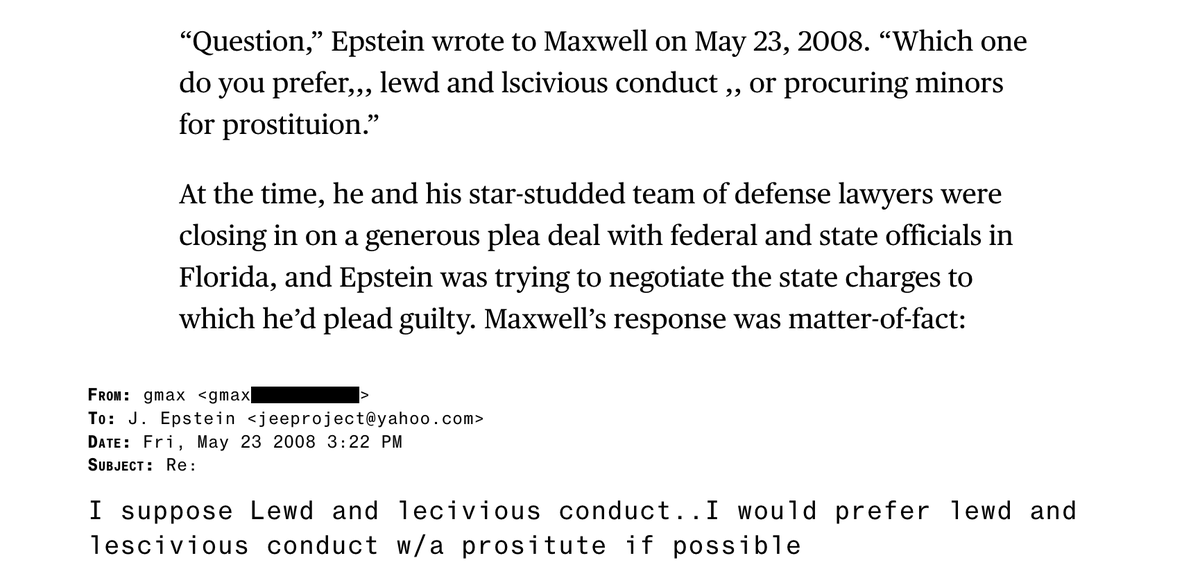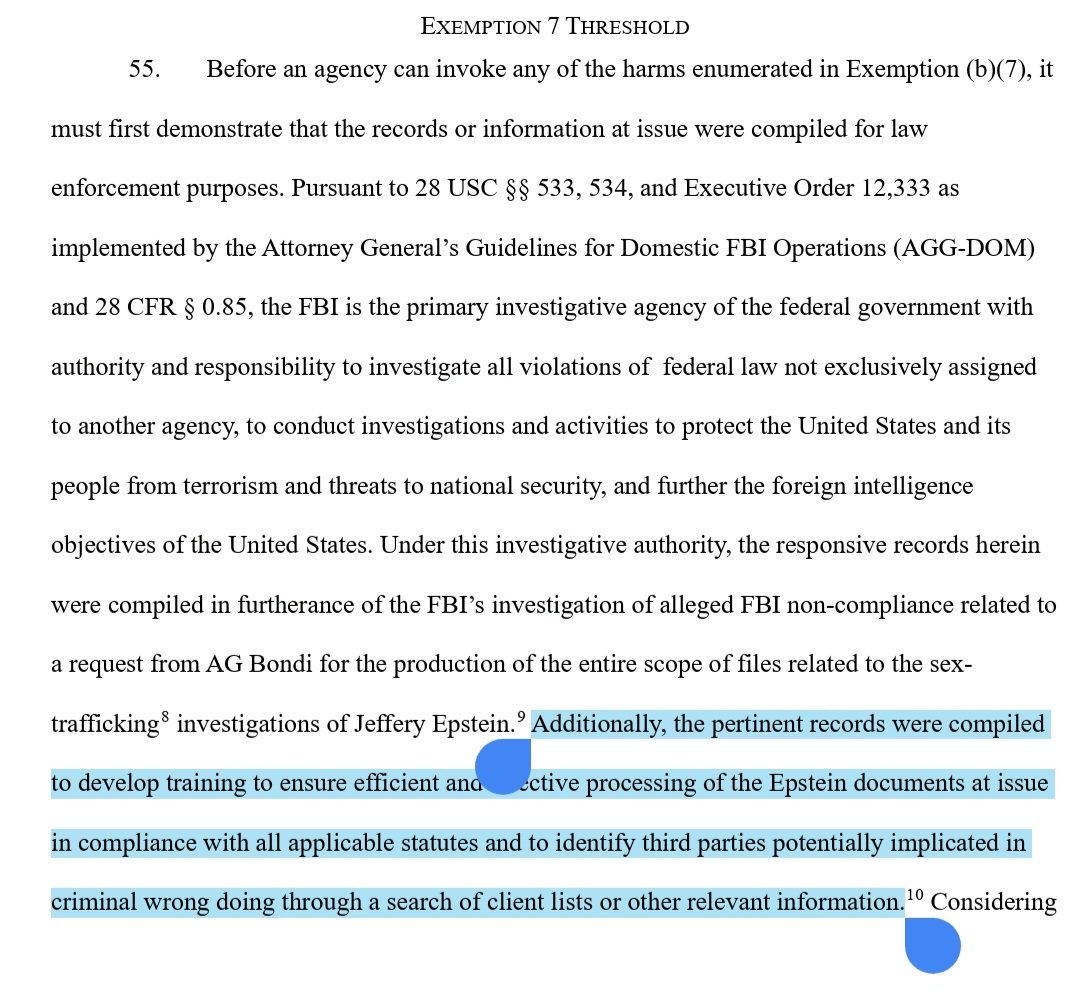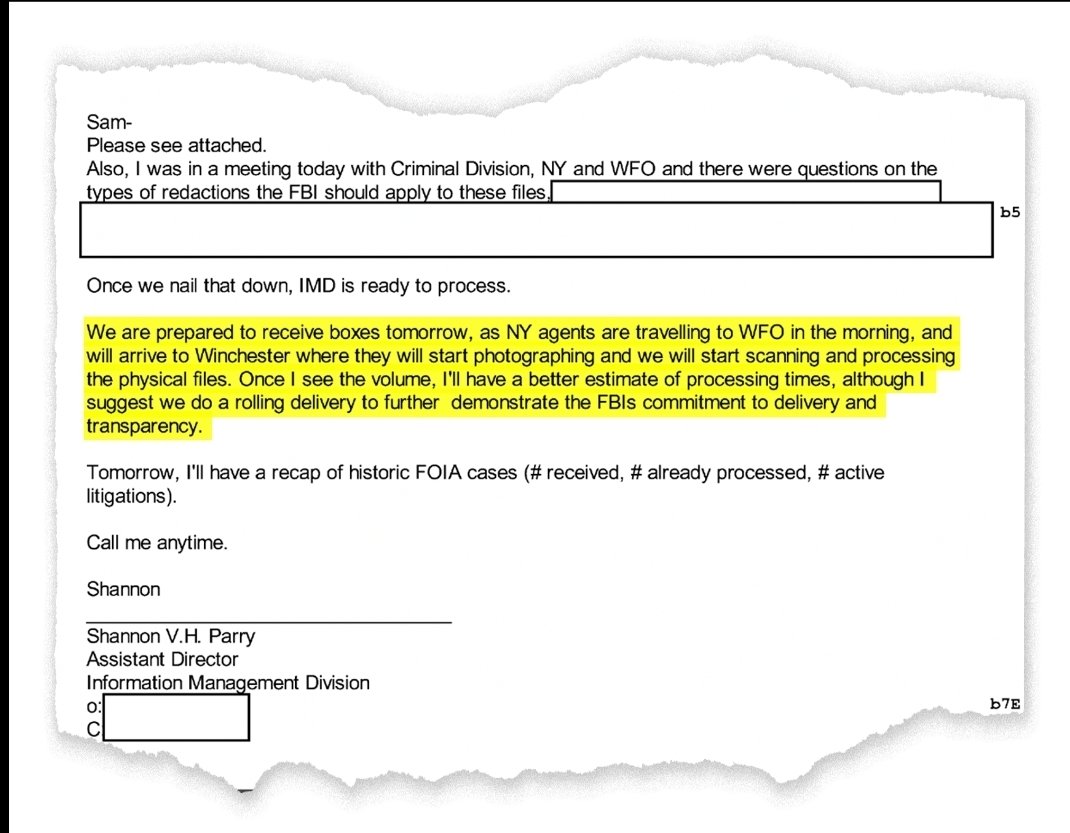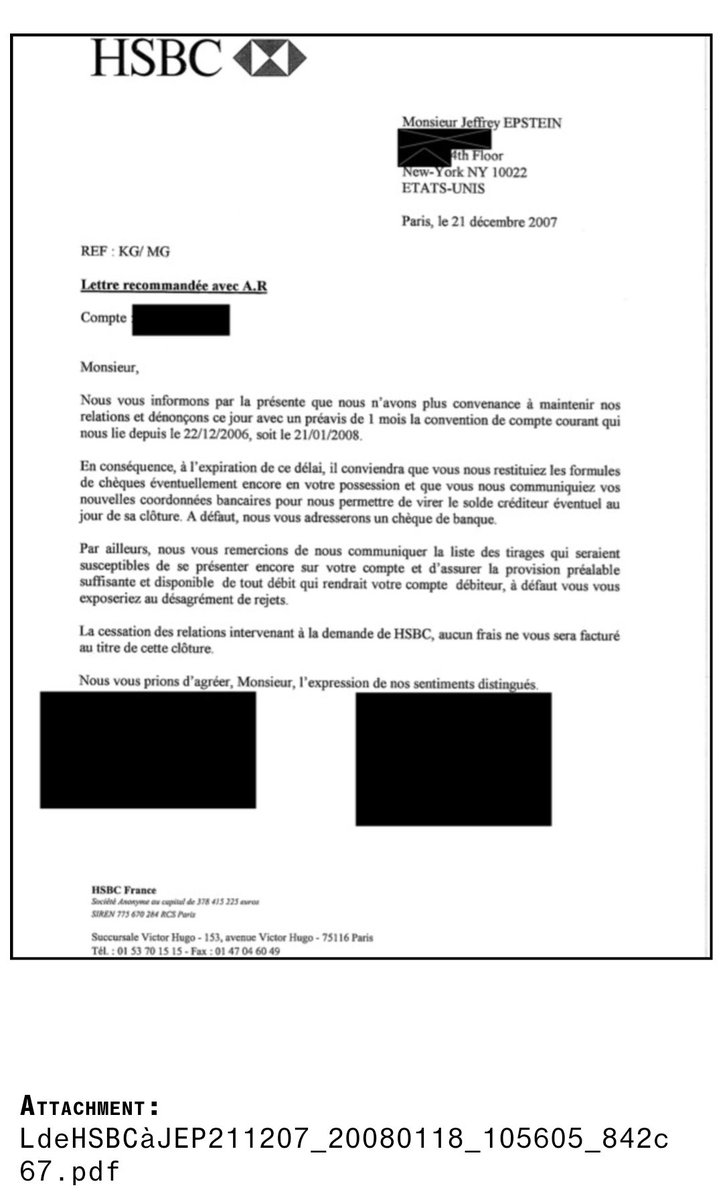NEW #FOIA SCOOP/🧵Took me 6 yrs to pry this out of NSA
A few wks before @Snowden's leaks were published, 2 NSA employees contacted NSA IG to blow the whistle on unauthorized surveillance
IG substantiated it
W/@KatrinaManson @WilliamTurton @rj_gallagher
bloomberg.com/news/articles/…



A few wks before @Snowden's leaks were published, 2 NSA employees contacted NSA IG to blow the whistle on unauthorized surveillance
IG substantiated it
W/@KatrinaManson @WilliamTurton @rj_gallagher
bloomberg.com/news/articles/…




This NSA report, which, including supplemental material, totals more than 400 pages, has never been disclosed before nor have the details related to this incident. It is a missing piece of history and is extremely noteworthy.
2/
2/
On March 12, 2013, @RonWyden asked then DNI James Clapper at a congressional hearing if NSA was collecting data on Americans
“No sir,” Clapper said. “Not wittingly.”
A couple wks earlier, an NSA analyst began to raise red flags about unauthorized surveillance activities
3/
“No sir,” Clapper said. “Not wittingly.”
A couple wks earlier, an NSA analyst began to raise red flags about unauthorized surveillance activities
3/

This NSA employee, ID'd in the IG report as a global network analyst & referred to as "the source," spent the next several months trying to get NSA officials to address concerns abt another employee's SIGINT project that targeted a "large volume" of US persons phone numbers
4/
4/

The global network analyst provided NSA officials with detailed info & data about how the other analyst's project was violating NSA surveillance rules and possibly the law. But the global network analyst was ultimately rebuffed.
5/
5/

So on May 7, 2013, just about a month before the first stories based on @Snowden docs about NSA's vast surveillance programs, were pubbed, the global network analyst and another NSA employee contacted the IG
6/


6/


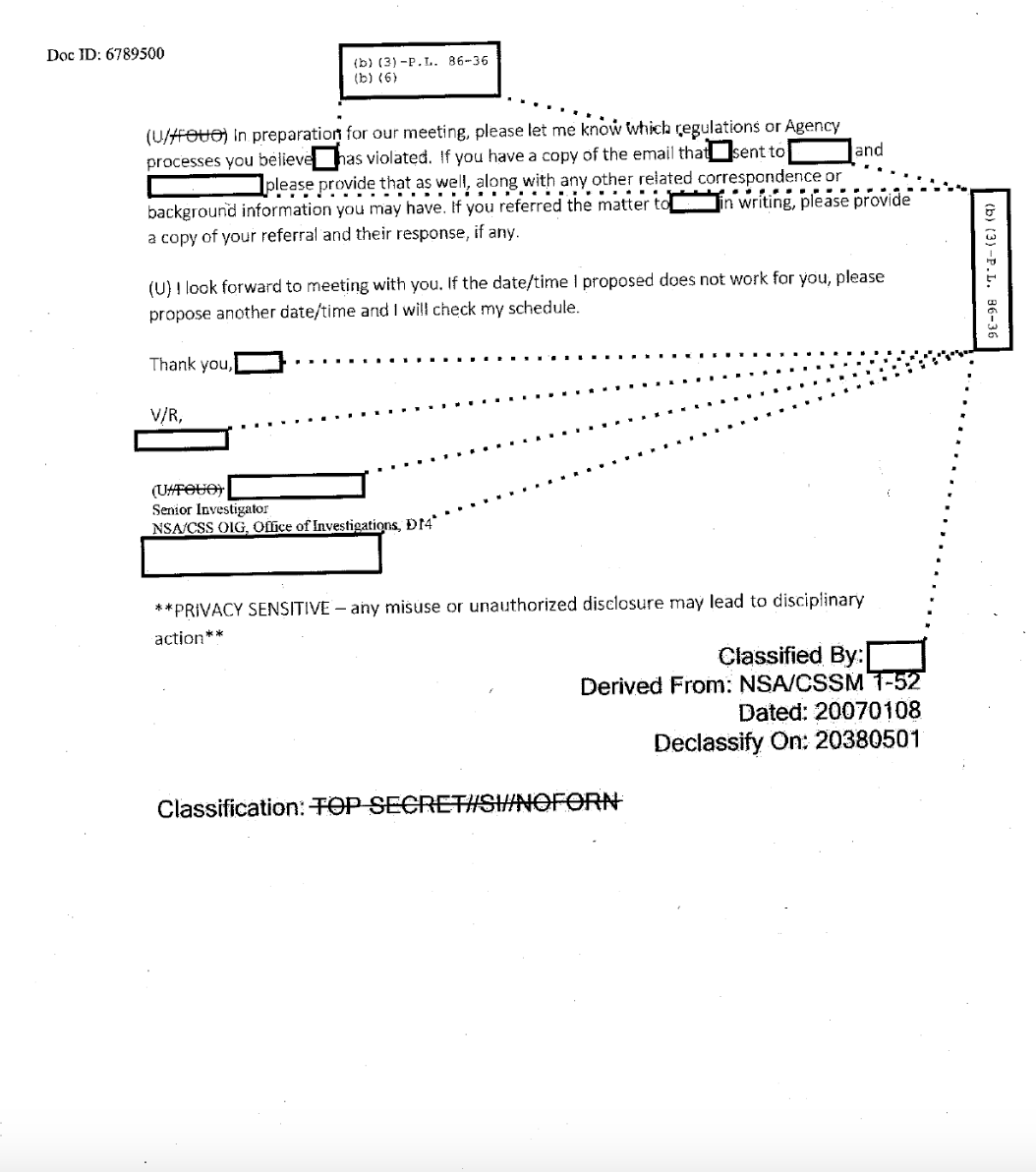
There is no indication in the IG report that the events are related to NSA activities and programs revealed in the Snowden docs. However, the IG investigation occurred during a period in which the NSA was under intense pressure to address alleged wrongdoings.
6/
6/
The NSA employee who was accused of wrongdoing and collecting "a large volume" of US person phone numbers with "no foreign intelligence purpose" became highly defensive during the IG's probe.
This is an email he sent in June 26, 2013, a few weeks after @Snowden disclosures
7/


This is an email he sent in June 26, 2013, a few weeks after @Snowden disclosures
7/

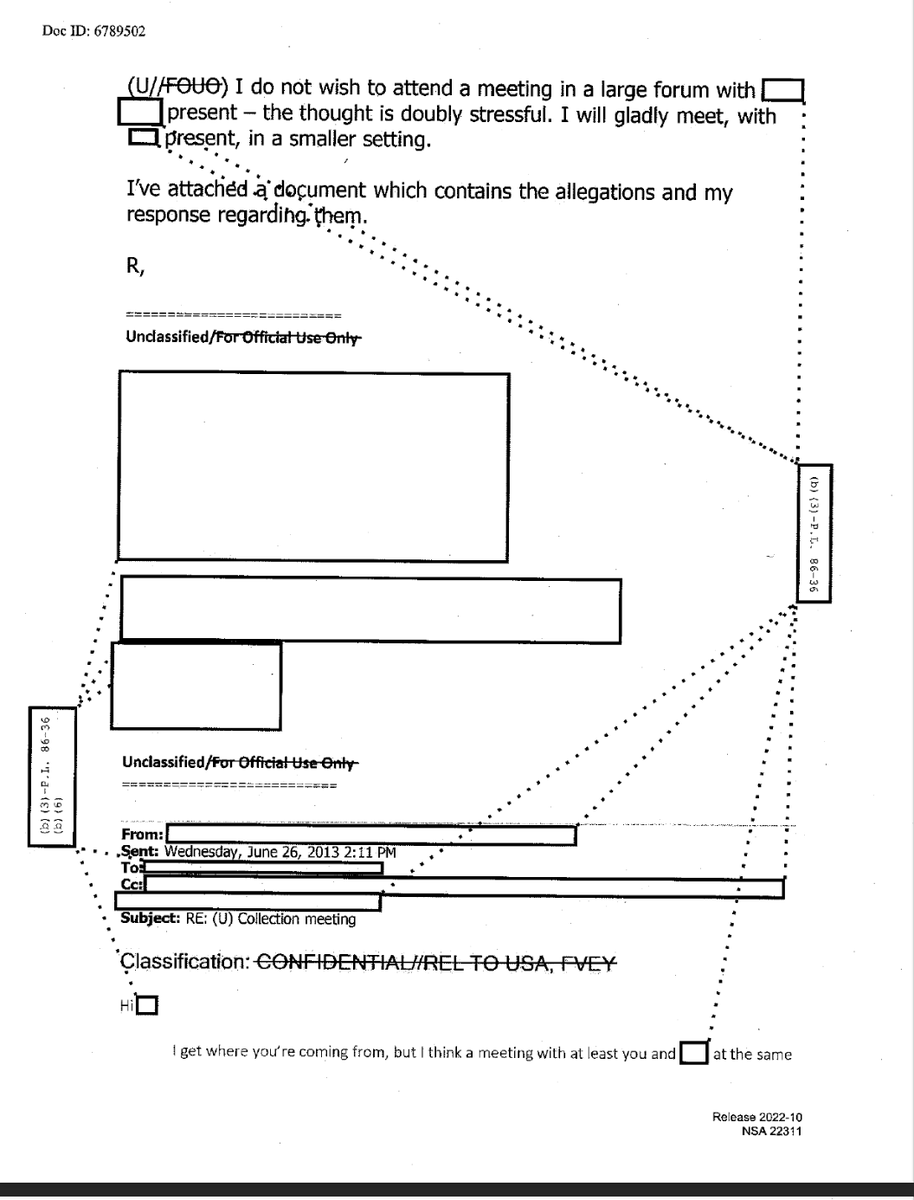

The NSA employee who was accused of wrongdoing and collecting "a large volume" of US person phone numbers with "no foreign intelligence purpose" became highly defensive during the IG's probe.
This is an email he sent in June 26, 2013, a few weeks after @Snowden disclosures
7/


This is an email he sent in June 26, 2013, a few weeks after @Snowden disclosures
7/



The NSA IG spent 3 years investigating whistleblowers allegations and whether the senior analyst violated the law by wrongfully collecting US persons' communications.
A year into the investigation, the whistleblower reached out to the IG again.
8/
A year into the investigation, the whistleblower reached out to the IG again.
8/

In late December 2015, the NSA IG concluded its investigation and presented the findings to the analyst accused of improperly collecting US persons' comms. The analyst provided a point by point rebuttal which is heavily redacted.
9/



9/


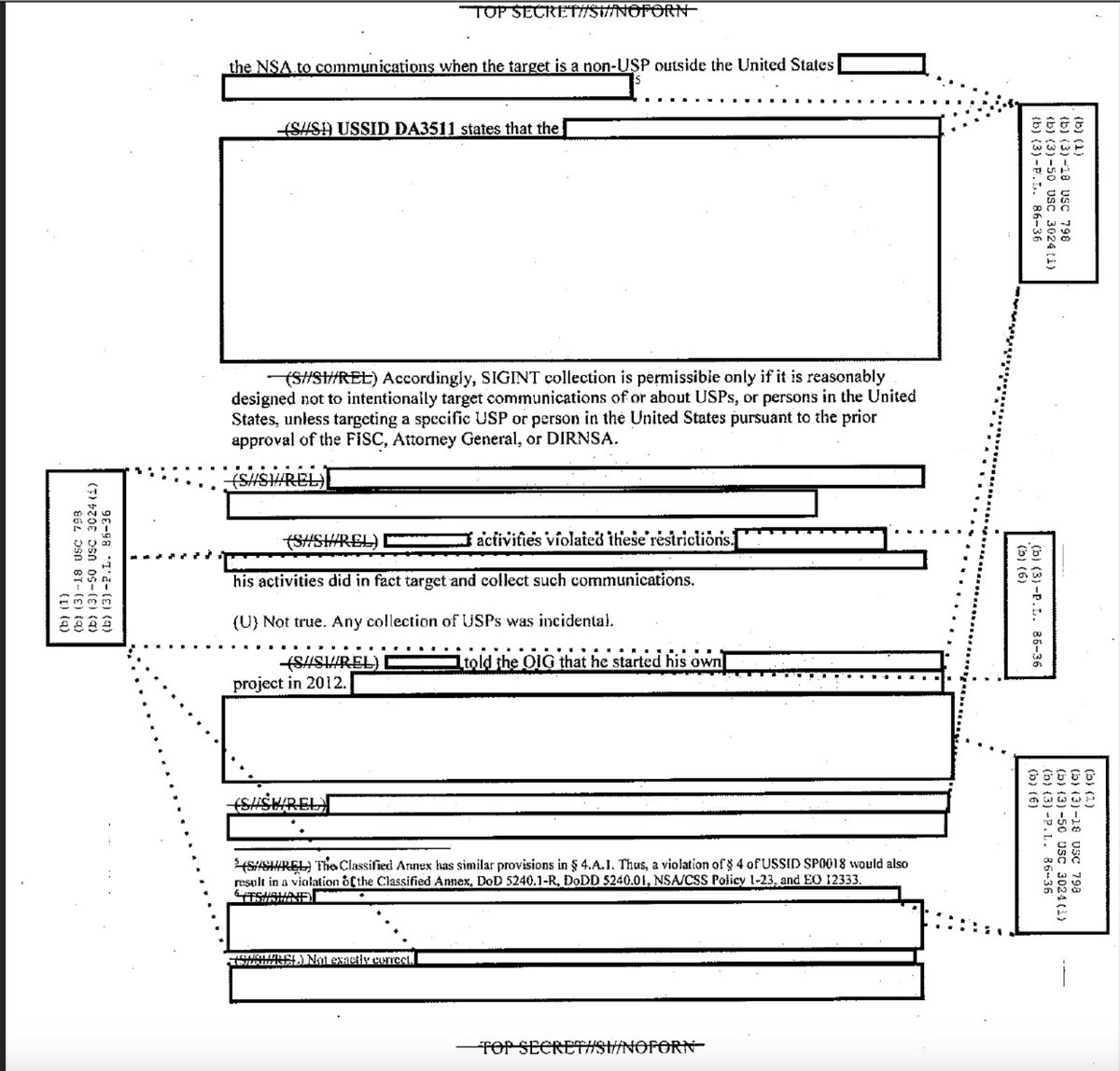

The NSA IG completed it's report in February 2016 and substantiated all of the whistleblowers' allegations.
The IG also called to attn a lack of oversight by NSA officials who told the IG they were aware of the analyst's project but didn't understand what he was doing.
11/



The IG also called to attn a lack of oversight by NSA officials who told the IG they were aware of the analyst's project but didn't understand what he was doing.
11/




Then-NSA IG George Ellard sent a memo to the NSA's Signal Intelligence Director saying the analyst may have violated two provisions of FISA and clearly violated NSA internal policies and procedures related to the collection of US persons comms.
12/



12/




It's unknown if the analyst was ever held accountable.
The NSA would not respond to detailed questions. Instead, the agency issued a statement to Bloomberg.
13/
The NSA would not respond to detailed questions. Instead, the agency issued a statement to Bloomberg.
13/

.@RonWyden, who has spearheaded surveillance reforms, told Bloomberg this previously unreleased NSA IG report "further confirms that intelligence agencies sometimes commit abuses and violations."
14/
14/
Finally, we reached out to @Snowden and shared the report with him because the timing of the allegations and the IG investigation are noteworthy as it relates to his revelations of surveillance absues at the agency
He told Bloomberg in a statement through his lawyer:
15/15
He told Bloomberg in a statement through his lawyer:
15/15

• • •
Missing some Tweet in this thread? You can try to
force a refresh





